Copper Kalash
₹910.00
Description
- Made of pure copper.
- To make copper water, pour water in the copper vessel and leave it overnight.
- When water is kept for a specific time period in the copper glass, it kills the undesirable bacteria and viruses and the resultant water gets charged with the health benefitting qualities of the copper.
Specifications
- Material: Copper
- Pack of – 1
- Size – (Top W x H): 9.5 x 15.2 cm
- Weight – 350 g
Categories: Pooja Ingrediants, Pooja Vessels
Related products
Lotus Seeds
₹40.00
Description
- Lotus seeds strengthens devotion and opens the heart for divine grace.
- Lotus seeds have the quality of sattva or purity and are associated with Vishnu, the preserver.
- The lotus being a symbol of growth, as it blooms beautifully even in the most unlikely, difficult environments, and is a metaphor for our own growth.
- Also called as Kamal Kakadi or Pabdi, these seeds are used an an offering to Goddess Laxmi and are also offered as a fire oblation while doing Mahalaxmi yagna.
Quantity
- 21 seeds
Pooja Ooti
₹50.00
Description
- Essential ingredients for offering to deities during daily worship.
Contents
- Mix of 5 dry fruits Walnut, Almond, Dates, Betelnut, Turmeric (Akhrot, Badam, Kharek, Supari, Haldi) - 5 pieces each.
- Karanda Phani: The vastra (clothing) made out of cotton and haldi (turmeric) and kumkum (vermilion) and Saubhagyalen (i.e green bangles, mangalsutra) is called 'Karanda Phani'.
Quantity
- 1 pcs each
Clove, Cardamom, Betelnut
₹95.00 – ₹210.00
Description
- Pack of cloves (long), cardamom (elaichi) and betelnut (supari) for use in daily pooja and rituals.
Used
- Clove in pooja rituals for fulfillments of desires and success in work (karya siddhi).
- Cardamom has a special aroma, which is pleasant and is used to attract and invoke deity energies.
- The betel nut is an integral part of the daily or ritualistic Pooja.
- It is also popularly used in the age old- custom of Indian eating.
- The supari is symbolic of the nut of the ego that must be offered on the altar of God.
- It represents the hard, coarse qualities that must be surrendered to God, leaving only the soft, pure qualities.
Quantity
- Clove, Cardamom, Betelnut - set of 5 , or 11 each
Gomutra
₹150.00
Description
- Being highly recommended by the scriptures, it is considered holy and safe to use.
- The original scriptures of Ayurveda consider cow urine to be the elixir of life.
- Cow urine is an important part of many Indian rituals/daily pooja.
- Gomutra has the ability to attract divine consciousness which in turn creates an increase in the Sattva component and therefore facilitates spiritual healing.
- The Indian cow has the ability to attract the frequencies of all the deities in the universe.
Quantity
- 200 ml
Navadhanya
₹35.00
Description
- Navadhanya signifies the nine grains (where ‘Nava’ means nine and ‘Dhanya’ means grains) that are an important part of an Indian’s staple food.
- They are offered to the Navgrahas (9 planets). They are also part of other Hindu pooja and rituals. The Navadanya includes Bengal Gram, Wheat, Horse Gram, Green Gram, Rice, White beans, Black Seasame seeds, Chic Peas, Black Gram.
- Usage of Navadhanya as a Hindu pooja item is a ritual followed during specific occasions such as the Grahapravesam or house warming ceremony and also during the Navaratri festival.
Uses of Navadhanya for Grahapravesam
- The Grahapravesam or house warming ceremony is a ritual performed before someone starts living in a new house.
- Sometimes, a Grahapravesam may also be performed if the house or a portion of the house has been rebuilt, or if someone is coming back to live in the house after being away in a different place for a long number of years.
- The objective of performing this ritual is to invoke the blessing of the gods to grant happiness, peace, prosperity and longevity to the people who are going to live in the house.
- During this ritual, the Navadhanya is one of the essential Hindu pooja items. These nine grains are placed in a pot filled with water along with a one rupee coin and a coconut is then placed on top of the pot. The priest then performs the pooja ritual after which this pot is taken inside the house and placed near the homam fire.
Use of Navadhanya during Navarathri festival
- Navadhanya is also an important part of the Navarathri festival which is celebrated for nine continuous days in worship of the Hindu goddesses.
- “Kolu” is a significant aspect of this festival where different idols are arranged such that they signify different stories from the various epics in the Hindu religion. Pooja will be performed for the idols placed in the Kolu every evening and neighbors will be invited to visit the Kolu and sign hymns in praise of the gods.
- Each evening one of the Navadhanya will be cooked and offered to the deity and visitors in the form of “Sundal”.
- The Kolu custom and evening pooja is incomplete without a sundal made from one of the Navadhanyas.
- Apart from the spiritual or religious beliefs of well being when using a Navadhanya, intake of these grains has excellent health benefits.
Quantity
- 125 gms
Ghee
₹320.00
Description
- Ghee holds its position of purity in nearly all the Hindu pooja rituals.
- In Hindu mythology, Prajapati/Brahma, created Ghee by rubbing or "churning" his hands together and then poured it into fire to engender his progeny.
- So, whenever the rituals are performed, the pouring of Ghee into fire symbolises a re - enactment of creation.
Quantity
- 200 gms
Kala Urad / Black gram
₹55.00
Brass Kalash (Small)
₹350.00
Description
- This lovely Kalash can be utilized karwa chauth and any event like wedding , commitment ,diwali , raksha bandhan or in any ceremonies, puja Brass Kalash keeps up an exceptionally propitious job as it is a piece of each religious customs.
- This is made of Brass material which makes it durable.
- Kalash is an important accompaniment in pooja rituals, weddings and important festive occasions.
- The water in Kalash is also used during abhishekam.
- Made in heavy shining brass.
Specifications
- Material - Brass
- Pack of - 1
- Size - (W x H) 6 x 6.5 cm
- Weight - 66 g


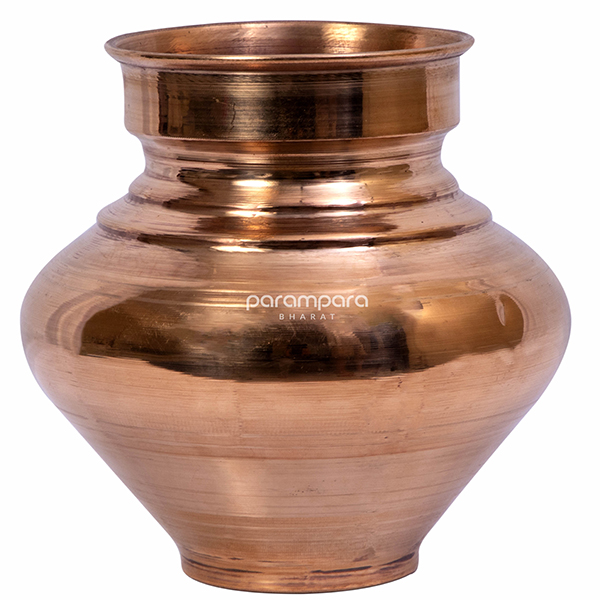
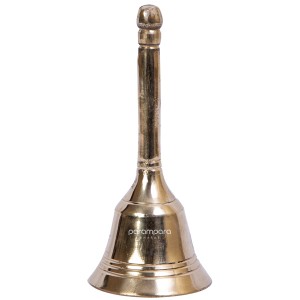
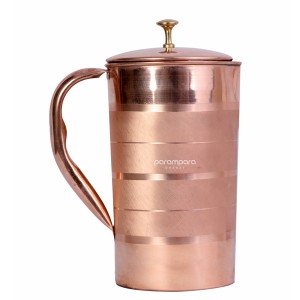

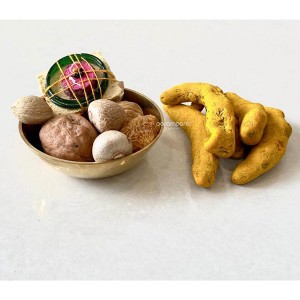
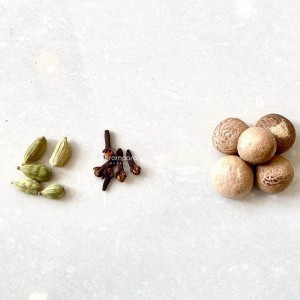
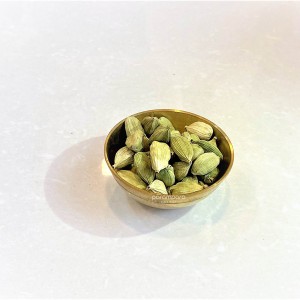
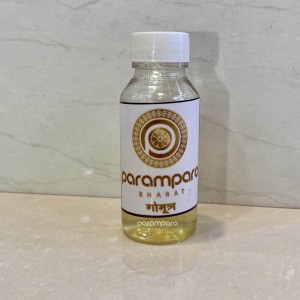
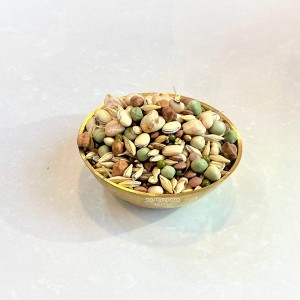
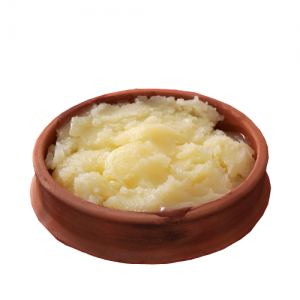

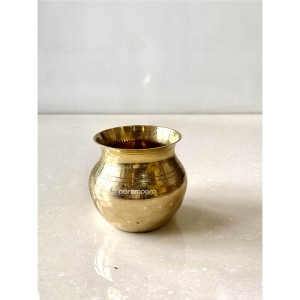


Reviews
There are no reviews yet.